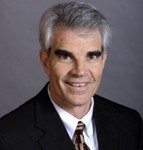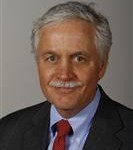
by | Dec 4, 2012

When the inevitable battle with public-sector employees in Iowa begins to rage here in the next few months and every elected Democrat in the state marches in lock-step with union negotiators, the following will help you understand this phenomenon.
Not only does their ideology lend itself to supporting the concept of an organization/government “protecting” people from the free market–it turns out that this cast of Democrat legislators largely are the unions.
Iowa House Democratic Caucus by Occupation
Below is a look at the occupations of the 46 Democratic members of the Iowa House that will be in office the next two years.
Teachers/Principals former and current = 12
Attorneys = 7
Occupation Unclear = 4
Social Work = 2
1 Each of the Following— Realtor, Farmer, Pharmacist, Grants Coordinator, Funeral Home Business, Golf Course Owner, Banker, Accounting Clerk, Head of Non-Profit Organization, (12 more random single occupations not listed here).
Number who have direct/indirect past or current union backgrounds (mostly public-sector) = 21
Trends
By far the biggest takeaway here is that of the 42 who had a clear current or former occupation that could be found on their legislative page or campaign website, a whopping 21 of them had direct connections to unions–the vast majority of which were public-sector. That is a full 50% of the caucus and does not even include Bruce Hunter, a ranking member of the Labor Committee whose wife is the State Political Director of the AFL-CIO, or Anesa Kajtazovic who goes out of her way to mention in her bio that at a young age her father’s experiences in the workforce led her to be “reminded how important union representation can be.”
The second biggest trend is that 12 of the 42 members with clear employment histories are current or former teachers. This explains why year after year we have a fight in the legislature to increase spending on education by 4% for “allowable growth”–not to mention why firing a teacher is almost unheard of, why there is currently no substantive teacher evaluation, and why there needs to be a Republican push just to ensure that students aren’t passed out of the 3rd grade without being able to read at the proper level, a policy that would seem to be the epitome of common sense. What is not so easily explained is with such a large number of educators doubling as legislators and a majority of the state budget dedicated to it every year, how are the results embarrassingly insufficient in such a large number of districts.
Revealed above is the gross disproportion of representation that unions have in the General Assembly in comparison to the percentage of Iowa’s workforce that they account for. As of 2011 Iowa had nearly 1.4 million people in the workforce. Of this number only 155,000 were in unions (11.2%) and an additional 32,000 were effectively represented by union negotiations while not being listed members, thus bringing the total number of employees directly or indirectly represented by unions to 187,000, or 13.5% of the workforce. Of note here is that the 1.4 million Iowa workers number actually excludes those self-employed so the percentages represented by unions are actually slightly smaller than those listed above. Even taking the larger percentages, while only 13.5% of Iowans are either in or governed by unions, in the Iowa House’s Democratic caucus a full 50% have direct or past connections with unions.
Coming Up
Before the session gavels in I will also do a breakdown of the Republican Caucus by occupation in both Houses (unless one of the Liberal bloggers reading this wants to save me the leg work). It would be very interesting for comparison purposes and may further explain the massive partisan divide we see year after year–my guess is the top 3 for Republicans in some order are small business owners, lawyers, and farmers.
Later this week we will take a look at 3 specific cases that symbolize this dynamic of union/citizen representation in the House, and next week we will have a breakdown of the occupations of the Democrat Caucus in the Iowa Senate. This will be followed by a look at the proposals offered by both the unions and the governor and what is likely to unfold on this front next session.

by | Jul 11, 2012
 After easily defeating a primary challenger in June, Iowa House member Kevin Koester was kind enough to sit down with The Conservative Reader: Iowa to discuss his upcoming general election in November, as well as the many issues he will be dealing with should he earn a third term in the Iowa Legislature.
After easily defeating a primary challenger in June, Iowa House member Kevin Koester was kind enough to sit down with The Conservative Reader: Iowa to discuss his upcoming general election in November, as well as the many issues he will be dealing with should he earn a third term in the Iowa Legislature.
The Primary, The General Election, and the Pulse of House District 38
The process of winning re-election for Rep. Koester began even before the legislative session ended, as the first order of business was winning a primary challenge by Saylor Township resident Brett Nelson. As the session ran long, Koester made several hundred phone calls in his downtime and began getting acquainted with the voters in his newly re-drawn House District 38.
He handily defeated Nelson 456 to 80, and took many positives away from the effort this challenge required, “I’m very grateful for both the margin of victory and for the experience of the primary because it really helped energize my campaign for November, and gave me a great familiarity with the new territory in the district.â€Â In an interesting aside, after not meeting or speaking to each other throughout the primary, the two have since met and Nelson even took up an offer by Rep. Koester to join him in a weekly bible study—a great, albeit rare, good ending to a primary challenge.
Talking to voters throughout this process affirmed to Rep. Koester that the dominant issues for his November show-down with Democrat John Phoenix will include the state budget, government over-spending, and the economy. Besides these economic issues, the background of the two candidates, combined with the issues still facing the legislature, serve to telegraph the subject matter that will be front and center in this race—education reform and public sector unions.
While Koester has decades of experience with education in Iowa, Phoenix was elected to the Des Moines School Board where he served for six years. In addition to this, Phoenix also has been a long-time union steward, has already been endorsed by the AFL-CIO, and strongly believes that “unions help make our country stronger and improve the lives of all workers.â€
Speaking to these differences, Rep. Koester believes that, “because of his role and his voice on collective bargaining issues and union viewpoints, there will be plenty of distance between us to give the voters a clear choiceâ€. Given the fact that Mr. Koester is a strong Conservative Republican and Phoenix is a pro-union, former school board member who featured Des Moines super-liberal Ako Abdul-Samad at his first fundraiser—the gulf between the two is likely to be enormous on a long list of issues. Here is a look at two of these issues, and where Rep. Koester stands on them.
Education Reform
Like most Iowa Republicans, Mr. Koester was very disappointed in the progress made on education reform by the last General Assembly. “The things we voted on last session were not reforms, they were Band-Aids. We did not do surgery, and that is what is truly needed.â€
After seeing countless specific and detailed proposals get torn apart by the opposing sides, he stands ready to work on a broad frame of reform that can be agreed on in principle and passed. “What I have is a drive to dismantle the fluff, and no patience for the simple arguments that only serve to attack valid ideas. We need to stop the nit picking and the warring, and come up with a product and move forward on it.â€
Two realities in the current system that he sees as negatively affecting students are the lack of teachers being removed for poor performance and the practice of “last in first outâ€, which is the seniority structure that protects long-time teachers from being let go, in favor of removing less tenured teachers when staff sizes are cut. This practice has long been under fire by Republicans because it refuses to take into account the skill level and effectiveness of each teacher. “Last in first out is bad for kids. We need to look at who is performing and have that be the prime focus, and not necessarily just who has the most experience. A pay raise needs to be given for performing better, not just given out for coming back the next year and being a year olderâ€.
In terms of the reforms needed to reverse our recent embarrassing trend in education, the crucial ingredient in Rep. Koester’s view is to quantify the performance of the employees in our education system. He will not support any proposal without this component, and he concisely summed up his position on education by saying:
We will have meaningful and fundamental reform when we agree on how we are going to measure student learning, how we are going to measure each of our Principal’s leadership and influence in the classroom, and how we are going to measure teachers and instruction. That is where the rubber meets the road on this issue.
Unions and Collective Bargaining
With Governor Branstad recently signaling a desire to look at their financial impact on the state, and John Phoenix’s close personal ties to them, there is little doubt that public sector unions and collective bargaining will be hotly debated in this race.
Rep. Koester has already taken several votes on this issue, all with the goal of bringing public sector unions more in line with the realities of the private sector, and attempting to prevent the payouts involved from breaking the bank as we have seen in several other states in recent years.
The votes he has taken include voting three times for employees of the Legislative branch, including himself, to pay a portion of their health insurance cost. The first was for a contribution of $50 a month, the second for a $100 a month, and the third for $200 a month. “I have gone on record every opportunity I have had insisting that Legislators are charged something, and I strongly believe that all state employees should help pay for the cost of their health insurance.â€
He also voted in favor of the measure that went into effect July 1st, which changed the formula for calculating retirement benefits for state employees. In the past payouts were figured using an average of an employee’s top three wage earning years, which has now been changed to take the average of the top five years.
In the larger picture, he supports having a policy ensuring that the number of government employees does not swell beyond what is needed and can be financially sustained in the long run. To this end he favors implementing breaks on the growth of state government that ties the number of workers and salaries to the overall growth of our state economy, and prioritizes the issue the following way:
I want to start with how we plan for how many state jobs there will be. You don’t grow the economy by growing the number of public jobs—that is socialism. The second thing is then addressing the disproportions in the health insurance contributions and the retirement benefits. The benefits are out of control compared to what the private sector is doing, and to what Iowa taxpayers are doing to take care of their families. We need to get those things in line, and what is fair for the rest of Iowans should be fair for the public employees that they are paying for.
Next Stop: November
Anyone who talks issues with Rep. Koester immediately realizes that he has a deep grasp on nearly all of them, including all the moving parts involved with each. On substance, he can go toe-to-toe with anyone and will shine in the public forums and debates with Mr. Phoenix.
As this contest slowly unfolds till November, the topics these two candidates debate along the way will be a roll call of every major issue facing the citizens of Iowa. In particular, the colliding ideologies on taxes, education, and public sector unions will be a true foreshadowing of the debates that will consume the next General Assembly.
How strong a candidate John Phoenix will be remains to be seen, but Republicans throughout Iowa and HD 38 can be assured that Kevin Koester is up to the challenge—and will remain a strong Conservative voice for the Party in the coming years.

by Paul McKinley | Jul 16, 2011
 Though the third longest session in Iowa history has been over for two weeks, Governor Branstad still has until the end of July to sign or veto any of the legislation that was passed.
Though the third longest session in Iowa history has been over for two weeks, Governor Branstad still has until the end of July to sign or veto any of the legislation that was passed.
While there were some notable and very positive accomplishments, Senate Democrats also stood in the way of a lot of positive progress.
Here are a few accomplishments followed by some of the missed opportunities.
1) Sustainable Budget
We finally are back on the path to long-term fiscal sustainability with a budget that spends less than we take in and funds Iowa’s priorities. Is there more we can cut? Absolutely. But it’s a good start and a real break from the problems of the last four years.
2) Rule & Regulatory Reform
We have begun to change the direction of the state when it comes to onerous rules and regulations that are stagnating job creation. Our 11 city “Re-Open Iowa for Business†tour has yielded some great suggestions and opened a lot of eyes. Stay tuned in a few weeks more information on this as our comprehensive report will be made public.
3) Reorganization of Economic Development Department
This reorganization of Iowa’s economic development department, one of Governor Branstad’s top priorities, will give the state more flexibility as it pursues and recruits entrepreneurs and job creators to Iowa. This reorganization, coupled with helping our existing businesses, will be key to continuing to grow Iowa.
What were some of our missed opportunities because of Senate Democrat obstruction?
1) Property Taxes
In order to make our state more competitive for jobs, we must have lower property taxes – for all classes of property. Unfortunately, the property taxpayers of Iowa will not get the comprehensive tax reform that they deserve. We will continue to work hard to find a bi-partisan solution and make next session the session of true property tax reform.
2) Clean Abundant Energy
In order to grow the economy of the future, we must have adequate, clean and reliable base-load energy. Nuclear energy is one excellent source that would create a lot of good jobs in Iowa. The Iowa House passed legislation to continue to pursue possibility of adding additional reliable base-load energy. The votes existed to pass it in the Iowa Senate in bi-partisan fashion, but Senator Gronstal obstructed a vote.
3) Income Tax Relief
Both individual and corporate income tax reductions would help grow our economy, create jobs and stimulate positive economic activity. Once again, it did not happen this session because of Senate Democratic obstruction but count on us to continue to push forward next session.
4) Collective Bargaining Reform
The Iowa House, with broad support, voted to inject some common sense reforms into the collective bargaining and arbitration processes in Iowa. For the long term fiscal sustainability of the state, we believe there needs to be more equity and fairness in the process. As it stands today, over 80 percent of state employees pay nothing for health insurance and most get lucrative benefit packages and healthy annual salary increases that are out-of-line with the private sector. It is not just the union bosses that should be at the table – the taxpayers deserve a seat at the table too.
5) Education Reform
We must once again make education about the children and discontinue the notion that simply spending more money will equal better student achievement. We need to set high standards and hold everybody accountable for the success and achievement of our students.
6) Late-Term Abortion & Marriage
Because of inaction by Senate Democrats, Iowa could soon become the Midwest Capital for Late-Term Abortions. We had the votes in the Iowa Senate to slam the door on abortionists like Dr. LeRoy Carhart who wanted to come into Council Bluffs and open up a clinic, but Senate Democrats refused to do what needed to be done. On the issue of marriage, Iowans sent a strong message last fall with the ouster of the three Supreme Court Justices. We need to keep the pressure on to give Iowans the statewide vote they deserve on the issue of marriage.
Though we made some positive steps forward, much of what we set out to accomplish not yet been achieved. Senate Democrats obstructed much of our pro-jobs agenda.
That is why we must work hard day in and day out to talk to our family, friends and neighbors about the important issues facing Iowa and continue to press forward with what we know will bring the brightest future for all present and future Iowans.
As always, I welcome hearing from you and can be reached by phone at 515-281-3560 or by e-mail at [email protected]





